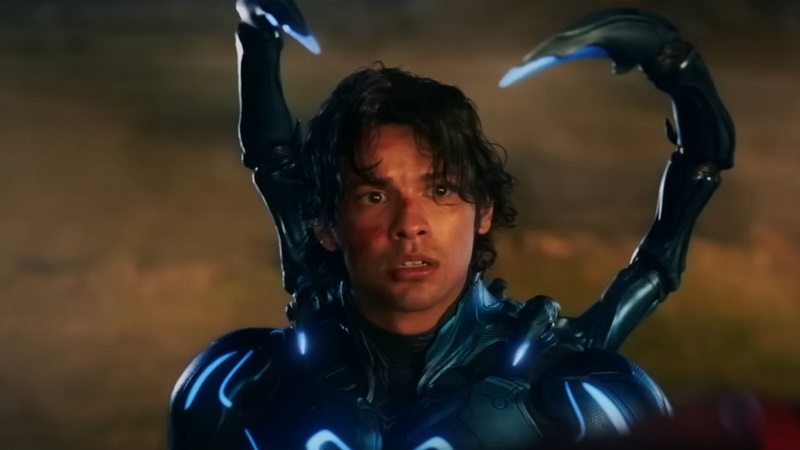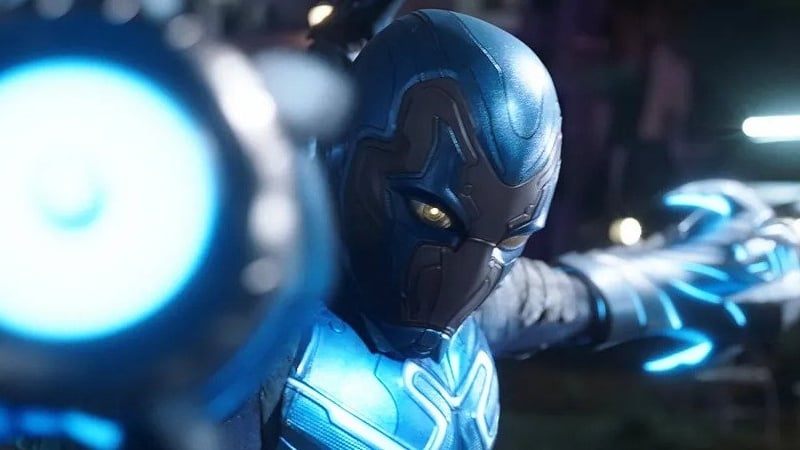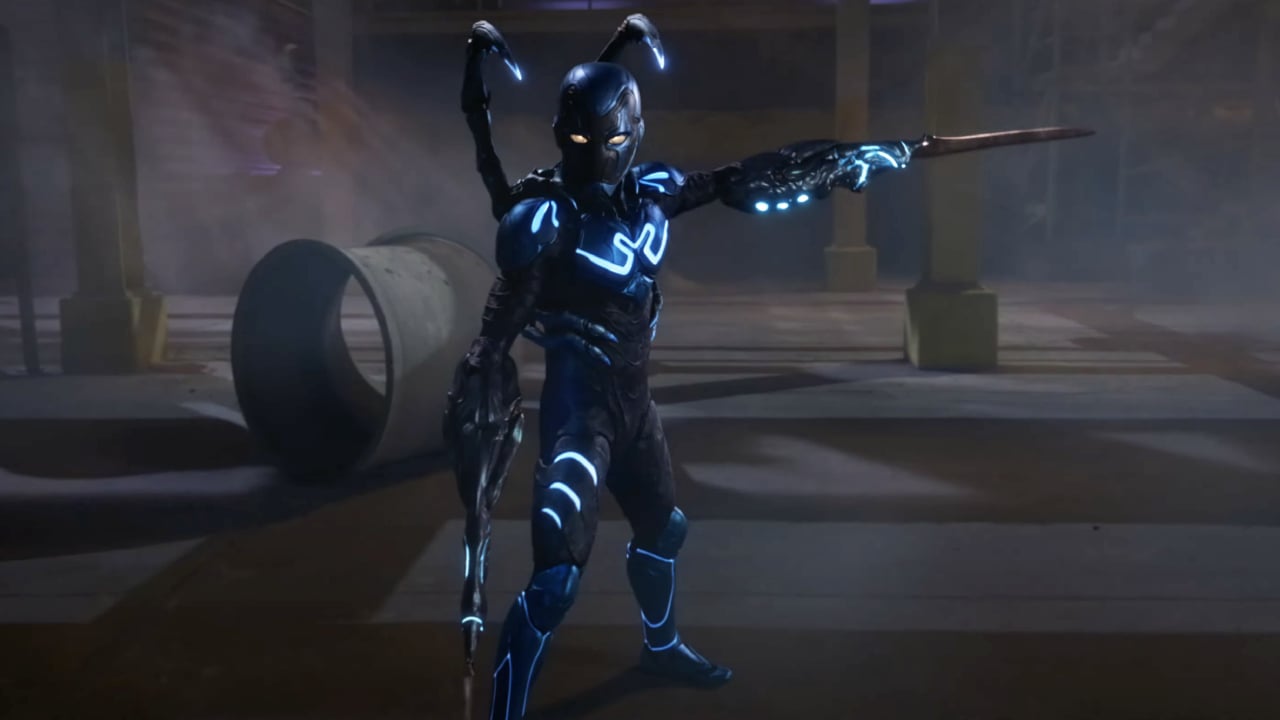After a messy decade for DC’s live-action film efforts, it’s time to go back to basics. Blue Beetle is a much-needed injection of new blood, returning to the glory days of superhero origin stories. It’s hard to imagine being nostalgic for the days when every comic book movie had to introduce half-a-dozen new characters to an indifferent crowd, but Jaime Reyes brings a breezy, comedic, family-focused feel that spices up the proceedings.
Blue Beetle comes to the screen courtesy of Ángel Manuel Soto, the Puerto Rican director of many celebrated short films and the 2020 drama Charm City Kings. Gareth Dunnet-Alcocer, screenwriter of Miss Bala, provides the script. Both have more experience in well-received short films than big-budget blockbuster fare, but they’ve got more sizable projects coming down the pipe after their first success. The film follows Jaime Reyes, a recent college grad selected by an alien device to become a semi-willing superhero.
For the uninitiated, Blue Beetle first hit the comic book page in 1939. Like a lot of other superheroes, the title fits multiple characters. The film focuses on the modern incarnation, Jaime Reyes while incorporating details of the first two. Jaime was introduced in 2006, forging a respectable position among DC’s teenage superhero lineup. He joined the Teen Titans. He became best friends with Booster Gold. He popped up in Injustice 2. Blue Beetle has remained a respectable B-lister since his debut, but he’s ready for primetime now.
Meet Jaime Reyes

Blue Beetle will remind some viewers of the glory days of Sam Raimi’s Spider-Man trilogy. It’s not as good as the first two entries, but it captures elements that few recent comic book movies can. Jaime feels more like a sincere, flawed, sensitive young man than most superheroes. More importantly, his supporting cast gets the attention it deserves. Reyes comes to the screen with a dedicated family unit. His mother, father, grandmother, younger sister, and unhinged uncle play a part in every beat of Jaime’s superhero origin. Xolo Maridueña brings impressive pathos to the lead role. He spends roughly half his screen time screaming in terror or frantically demanding clarification, but he always feels believable. Jaime’s Uncle Rudy, portrayed by George Lopez, will be an audience favorite. If there were awards for actors who seemed to have the most fun with their roles, Lopez would win.
The film pulls no punches with its themes. Jaime’s virtues as a superhero are entirely given to him by his family’s hard-won dedication and refusal to give up. Jaime’s first scene sees him return from university, excited to secure a high-paying job and buy his family the better life they deserve. Only minutes later, his folks explain that their family business is dead, his dad suffered a heart attack, and their house will soon be foreclosed. Susan Sarandon’s Victoria Kord isn’t just the supervillain opposing Blue Beetle. She’s the wealthy businesswoman gentrifying his neighborhood. This is the first of several surprisingly sharp representations of American imperialism as the larger antagonist of the piece. When Kord’s muscle, Raoul Trujillo’s Carapax, is revealed to be a graduate of the School of the Americas, history fans might audibly gasp. It’s willing to go to some surprising places.
Related: Does Blue Beetle Have a Post-Credits Scene?
Put on the Suit

With so many superhero movies out there, it’s hard to stand out above the pack. Blue Beetle delivers a unique set of powers, a strong visual gimmick, and a beautiful mix of CGI and practical effects. Bright, poppy neon colors dominate half the screen time. The cinematography isn’t anything groundbreaking, but it remains glorious to look at. The film’s action set pieces succeed by variety and escalation. Jaime has to spend most of his origin story learning to use his powers like everyone else, but the process is very different. Khaji Da, the alien scarab that bonds with Jaime to give him his gifts, is a living thing that Jaime must learn to work with. It’s not quite a buddy comedy, but their relationship develops alongside the grasp of his power. It’s a great way to keep things interesting as the stakes ramp up.
The weakest aspect of the film is its dialogue. There are plenty of lines that feel ripped out of a TV series from the 90s. Carapax unironically asserts that Jaime’s connection to his family makes him weak. The story is by-the-numbers, but its unique elements keep it from feeling too bland. There are a few jokes that fall flat, but they don’t linger long enough to matter much. Blue Beetle also has a strange habit of suddenly conferring importance onto previously one-note characters. A seemingly random scientist from an early scene makes one of the most important decisions in the film after nearly 90 minutes off-screen. Blue Beetle makes excellent creative decisions, but it also does a lot of borrowing.
Blue Beetle will be a breath of fresh air for DC fans. They don’t waste a minute on cinematic universe-building or IP management. It’s a good old-fashioned no-frills superhero origin story. Those familiar with Jaime Reyes will be thrilled with his big-screen debut. Blue Beetle‘s position in the new DCU isn’t clear, but if this is an indication of things to come, DC has brighter days ahead.
[review]





